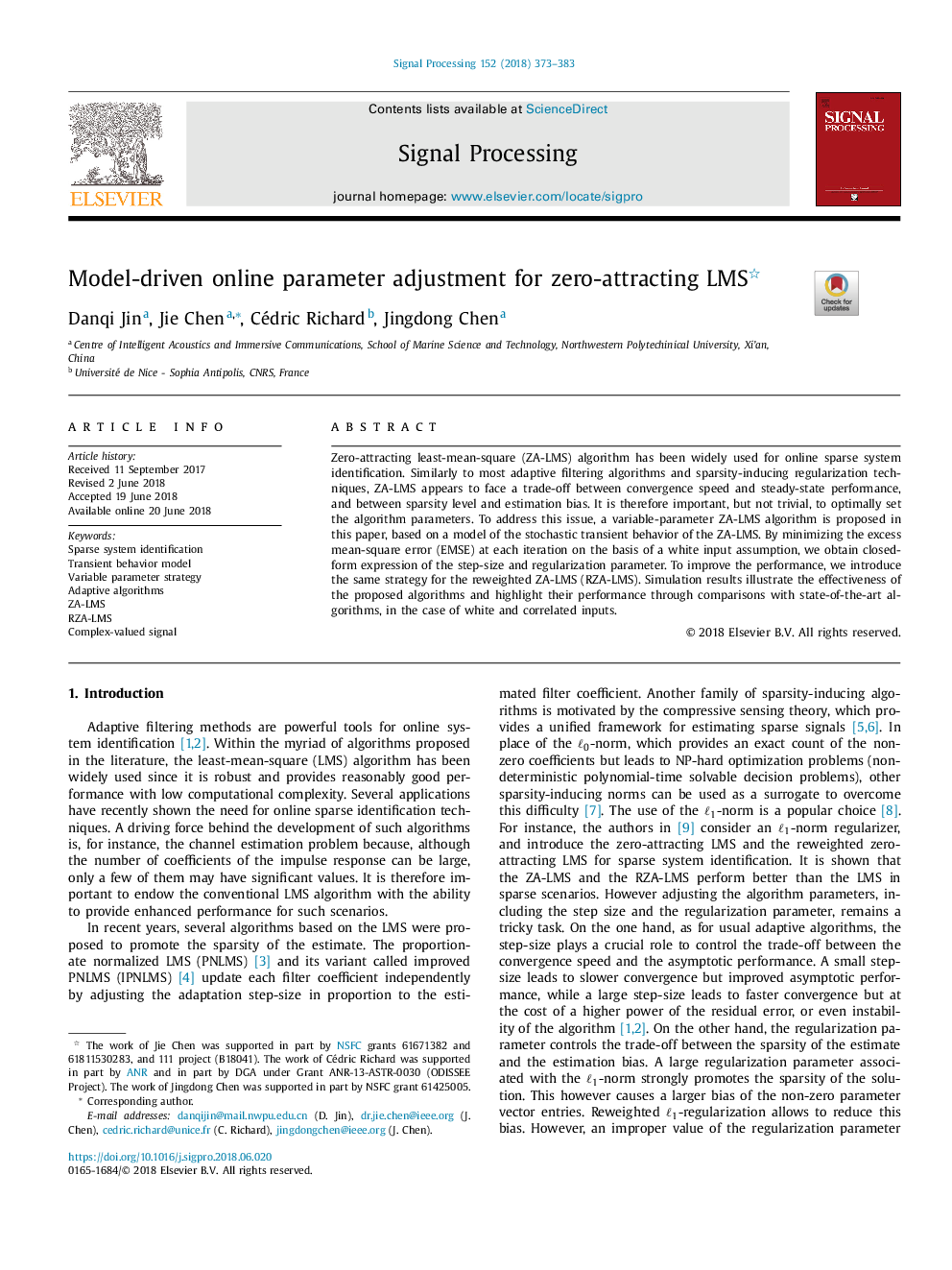| Article ID | Journal | Published Year | Pages | File Type |
|---|---|---|---|---|
| 6957246 | Signal Processing | 2018 | 11 Pages |
Abstract
Zero-attracting least-mean-square (ZA-LMS) algorithm has been widely used for online sparse system identification. Similarly to most adaptive filtering algorithms and sparsity-inducing regularization techniques, ZA-LMS appears to face a trade-off between convergence speed and steady-state performance, and between sparsity level and estimation bias. It is therefore important, but not trivial, to optimally set the algorithm parameters. To address this issue, a variable-parameter ZA-LMS algorithm is proposed in this paper, based on a model of the stochastic transient behavior of the ZA-LMS. By minimizing the excess mean-square error (EMSE) at each iteration on the basis of a white input assumption, we obtain closed-form expression of the step-size and regularization parameter. To improve the performance, we introduce the same strategy for the reweighted ZA-LMS (RZA-LMS). Simulation results illustrate the effectiveness of the proposed algorithms and highlight their performance through comparisons with state-of-the-art algorithms, in the case of white and correlated inputs.
Related Topics
Physical Sciences and Engineering
Computer Science
Signal Processing
Authors
Danqi Jin, Jie Chen, Cédric Richard, Jingdong Chen,
